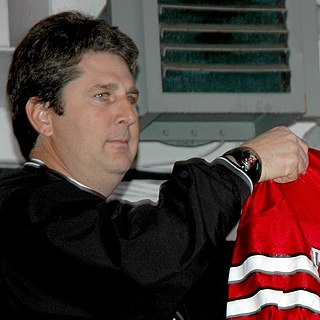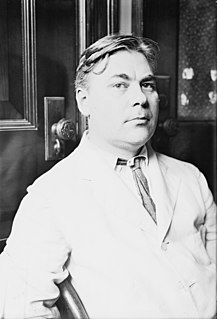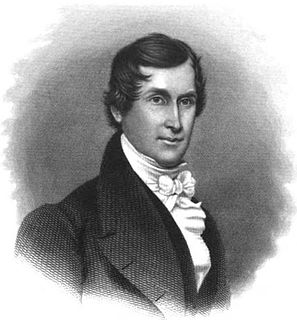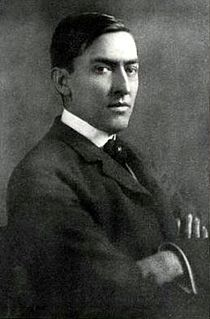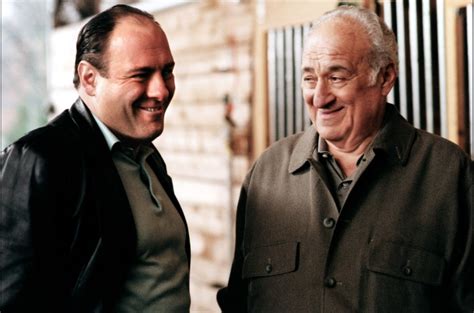Top 510 Corn On The Cob Quotes & Sayings - Page 9
Explore popular Corn On The Cob quotes.
Last updated on December 22, 2024.
Wake up now, look alive, for here is a day off work just to praise Creation: the turkey, the squash, and the corn, these things that ate and drank sunshine, grass, mud, and rain, and then in the shortening days laid down their lives for our welfare and onward resolve. There's the miracle for you, the absolute sacrifice that still holds back seed: a germ of promise to do the whole thing again, another time. . . Thanksgiving is Creation's birthday party. Praise harvest, a pause and sigh on the breath of immortality.
A king is a mortal god on earth, unto whom the living God hath lent his own name as a great honour; but withal told him, he should die like a man, lest he should be proud, and flatter himself that God hath with his name imparted unto him his nature also. JOHN LOCKE, "Of a King", The Conduct of the Understanding: Essays, Moral, Economical, and Political A king may be a tool, a thing of straw; but if he serves to frighten our enemies, and secure our property, it is well enough: a scarecrow is a thing of straw, but it protects the corn.
You can clear the land, plow the field, spread the fertilizer, and plant the corn. But you cannot make it rain. You cannot prevent an early frost. You cannot determine exactly what will happen in your life. The rain may or may not fall, but one thing is certain: you will get a harvest only if you planted something in the field. It's important to do everything in our power to ensure our success, but we also need to let the universe take its course.
Written in support of abolishing the Corn Laws, it became Elliott's most famous poem. The Peoples Anthem When wilt thou save the people Oh, God of mercy! When? Not kings and lords, but nations! Not thrones and crowns, but men! Flowers of thy heart, of God they are. Let them not pass like weeds, away Their heritage a sunless day! God save the people! When wilt thou save the people? Oh, God of mercy! When? The people Lord the people! Not thrones and crowns, but men! God save the people! Thine they are, Thy children, as thy angels fair, Save them from bondage and despair. God save the people!
...Mr. Wodehouse is a prose stylist of such startling talent that Frankie nearly skipped around with glee when she first read some of his phrases. Until her discovery of Something Fresh on the top shelf of Ruth's bookshelf one bored summer morning, Frankie's leisure reading had consister primarily of paperback mysteries she found on the spinning racks at the public library down the block from her house, and the short stories of Dorothy Parker. Wodehouse's jubilant wordplay bore itself into her synapses like a worm into a fresh ear of corn.
What keeps faith cheerful is the extreme persistence of gentleness and humor. Gentleness is everywhere in daily life, a sign that faith rules through ordinary things: through cooking and small talk, through storytelling, making love, fishing, tending animals and sweet corn and flowers, through sports, music, and books, raising kids-all the places where the gravy soaks in and grace shines through. Even in a time of elephantine vanity and greed, one never has to look far to see the campfires of gentle people. Lacking any other purpose in life, it would be good enough to live for their sake.
Candleford Green was but a small village and there were fields and meadows and woods all around it. As soon as Laura crossed the doorstep, she could see some of these. But mere seeing from a distance did not satisfy her; she longed to go alone far into the fields and hear the birds singing, the brooks tinkling, and the wind rustling through the corn, as she had when a child. To smell things and touch things, warm earth and flowers and grasses, and to stand and gaze where no one could see her, drinking it all in.
I dug myself a garden, and a stray cat I grew to like would come around to sulk in the corn. I forced myself to seek new love, and for a while, I thought I'd found it with a girl from my office. She was molten in my bed, but she also suffered depressions that were very dear to her. She would often call just to sigh at me for two hours on the phone, wanting me to applaud her depth of feeling. I cut if off, then missed her, wishing that I'd at least had the sense to take her naked photograph.
Oh, my fellow men, do not defile your bodies with sinful foods. We have corn, we have apples bending down the branches with their weight, and grapes swelling on the vines. There are sweet-flavored herbs, and vegetables which can be cooked and softened over the fire, nor are you denied milk or thyme-scented honey. The earth affords a lavish supply of riches, of innocent foods, and offers you banquets that involve no bloodshed or slaughter; only beasts satisfy their hunger with flesh, and not even all of those, because horses, cattle, and sheep live on grass.
In war," answered the weaver, "the strong make slaves of the weak, and in peace the rich make slaves of the poor. We must work to live, and they give us such mean wages that we die. We toil for them all day long, and they heap up gold in their coffers, and our children fade away before their time, and the faces of those we love become hard and evil. We tread out the grapes, another drinks the wine. We sow the corn, and our own board is empty. We have chains, though no eye beholds them; and are slaves, though men call us free.
Raising crops to feed animals for human consumption requires a lot of land. It takes eight or nine cows a year to feed one average meat eater; each cow eats one acre of green plants, soybeans and corn per year; so it takes eight or nine acres of plants a year to feed one meat eater, compared with only half an acre to feed one vegetarian.
Picture a tall, dark figure, surrounded by cornfields... NO, YOU CAN'T RIDE A CAT. WHO EVER HEARD OF THE DEATH OF RATS RIDING A CAT? THE DEATH OF RATS WOULD RIDE SOME KIND OF DOG. Picture more fields, a great horizon-spanning network of fields, rolling in gentle waves... DON'T ASK ME I DON'T KNOW. SOME KIND OF TERRIER, MAYBE. ...fields of corn, alive, whispering in the breeze... RIGHT, AND THE DEATH OF FLEAS CAN RIDE IT TOO. THAT WAY YOU KILL TWO BIRDS WITH ONE STONE. ...awaiting the clockwork of the seasons. METAPHORICALLY.
Between the years of ninety-two and a hundred and two, however, we shall be the ribald, useless, drunken, outcast person we have always wished to be. We shall have a long white beard and long white hair; we shall not walk at all, but recline in a wheel chair and bellow for alcoholic beverages; in the winter we shall sit before the fire with our feet in a bucket of hot water, a decanter of corn whiskey near at hand, and write ribald songs against organized society... We look forward to a disreputable, vigorous, unhonoured, and disorderly old age.
The valuable properties of this cement depend in a great measure on the mode of preparing it for use. The mixing should therefore be conducted with care in order to form a perfect union of the powdered cement, sand and water. This can be best accomplished by the use of the New England corn hoe on a board floor or by beating with a hand stamper; not much labour is required if properly applied. Mechanics can judge when the mixture is perfect by the appearance of the mortar, which, when properly prepared, very much resembles putty.
Your corn is ripe today, mine will be so tomorrow. 'Tis profitable for us both that I should labor with you today, and that you should aid me tomorrow. I have no kindness for you, and know you have as little for me. I will not, therefore, take any pains upon your account . . . Here then I leave you to labor alone; you treat me in the same manner. The seasons change, and both of us lose our harvests for want of mutual confidence and security.
By making marijuana illegal, the agricultural people can't grab hold of it like they did with corn and wheat. So those companies are scrambling around trying to get hold of it, but they can't, because it's a cottage industry, and it will always be a cottage industry. Because the minute the big companies try to make it their own, like they did with soybeans...like Monsanto, they put their own patent on seeds, and you can't do that with marijuana.
In a way, the world-view of the Party imposed itself most successfully on people incapable of understanding it. They could be made to accept the most flagrant violations of reality, because they never fully grasped the enormity of what was demanded of them, and were not sufficiently interested in public events to notice what was happening. By lack of understanding they remained sane. They simply swallowed everything, and what they swallowed did them no harm, because it left no residue behind, just as a grain of corn will pass undigested through the body of a bird.
When you have arrived at your country house and have saluted your household, you should make the rounds of the farm the same day, if possible; if not, then certainly the next day. When you have observed how the field work has progressed, what things have been done, and what remains undone, you should summon your overseer the next day, and should call for a report of what work has been done in good season and why it has not been possible to complete the rest, and what wine and corn and other crops have been gathered.
Satirical writers and speakers are not half so clever as they think themselves, nor as they are thought to be. They do winnow the corn, it is true, but it is to feed upon the chaff. I am sorry to add that they who are always speaking ill of others are also very apt to be doing ill to them. It requires some talent and some generosity to find out talent and generosity in others, though nothing but self-conceit and malice are needed to discover or to imagine faults. It is much easier for an ill-natured man than for a good-natured man to be smart and witty.
I got the breaks. Starting from nowhere in the corn belt, I helped edit a country weekly, then was jack-of-all-departments on an obscure daily, so that when I arrived in a big city everything I tackled in the line of column conducting and syndicate peddling and playwriting had to bring promotion, because I had no social standing which could be endangered, no reputation to toss away and no pride which might suffer a setback. Everything I acquired had to be velvet. You cannot lose your silver spoon if you are brought up on pewter.
There were times when I could not afford to sacrifice the bloom of the present moment to any work, whether of head or hands. Sometimes, in a summer morning, having taken my accustomed bath, I sat in my sunny doorway from sunrise till noon, rapt in reverie, amidst the pines and hickories and sumachs, in undisturbed solitude and stillness, while the birds sang around. I grew in those seasons like corn in the night, and they were far better than any work of the hands would have been. They were not time subtracted from my life, but so much over and above my usual allowance.
The other day Aks and I went up to your ranch for a day's fishing. I cannot remember any day when we have had more fun on a stream. We had along with us three newspaper men and a few secret service people, many of whom had never seen a trout stream, so we did the thing up right by borrowing frying pans, bacon and corn meal from the wife of your rancher - and we cooked an outdoor meal for the crowd. It was really quite a day.
It is often said it is no matter what a man believes if he is only sincere. This is true of all minor truths, and false of all truths whose nature it is to fashion a man's life. It will make no difference in a man's harvest whether he thinks turnips have more saccharine matter than potatoes--whether corn is better than wheat. But let the man sincerely believe that seed planted without ploughing is as good as with, that January is as favorable for seed sowing as April, and that cockle seed will produce as good a harvest as wheat, and will it make no difference?
Pride can go without domestics, without fine clothes, can live in a house with two rooms, can eat potato, purslain, beans, lyed corn, can work on the soil, can travel afoot, can talk with poor men, or sit silent well contented with fine saloons. But vanity costs money, labor, horses, men, women, health and peace, and is still nothing at last; a long way leading nowhere.--Only one drawback; proud people are intolerably selfish, and the vain are gentle and giving.
There is a time in every man's education when he arrives at the conviction that envy is ignorance; that imitation is suicide; that he must take himself for better, for worse, as his portion; that though the wide universe is full of good, no kernel of nourishing corn can come to him but through his toil bestowed on that plot of ground which is given to him to till. The power which resides in him is new in nature, and none but he knows what that is which he can do, nor does he know until he has tried.
That business we started with 10 people has now grown into a great American success story. Some of the companies we helped start are names you know. An office supply company called Staples – where I’m pleased to see the Obama campaign has been shopping; The Sports Authority, which became a favorite of my sons. We started an early childhood learning center called Bright Horizons that First Lady Michelle Obama rightly praised. At a time when nobody thought we’d ever see a new steel mill built in America, we took a chance and built one in a corn field in Indiana.
I will venture to affirm, that the three seasons wherein our corn has miscarried did no more contribute to our present misery, than one spoonful of water thrown upon a rat already drowned would contribute to his death; and that the present plentiful harvest, although it should be followed by a dozen ensuing, would no more restore us, than it would the rat aforesaid to put him near the fire, which might indeed warm his fur-coat, but never bring him back to life.
Lie in the sun with the child in your flesh shining like a jewel. Dream and sing, pagan, wise in your vitals. Stand still like a fat budding tree, like a stalk of corn athrob and aglisten in the heat. Lie like a mare panting with the dancing feet of colts against her sides. Sleep at night as the spring earth. Walk heavily as a wheat stalk at its full time bending towards the earth waiting for the reaper. Let your life swell downward so you become like a vase, a vessel. Let the unknown child knock and knock against you and rise like a dolphin within.
Just as Americans have discovered the hidden energy costs in a multitude of products-in refrigerating a steak, for example, on its way to the butcher-they are about to discover the hidden water costs. Beginning with the water that irrigated the corn that was fed to the steer, the steak may have accounted for 3,500 gallons. The water that goes into a 1,000-pound steer would float a destroyer. It takes 14,935 gallons of water to grow a bushel of wheat, 60,000 gallons to produce a ton of steel, 120 gallons to put a single egg on the breakfast table.
